| Andrei Sakharov Freedom Award | |
|---|---|
| Presented by | Norwegian Helsinki Committee |
| First awarded | 1980 |
| Website | nhc |
The Andrei Sakharov Freedom Award, officially known as the Sakharov Freedom Award and named after Soviet scientist and dissident Andrei Sakharov, was established in 1980 by the Norwegian Helsinki Committee with the support and consent of Andrei Sakharov himself, to help people who, because of their opinions, beliefs, and conscience are persecuted or imprisoned. The fund's assets are to be used for direct support to those persecuted in their home country, mainly by granting the Sakharov Freedom Award. [1]
| Year | Recipient | Nationality | Notes | Reference |
|---|---|---|---|---|
| 1984 | Charta 77 | ČSSR | [2] | |
| 1996 | Sergei Kovalev of the Memorial Human Rights Center | Russian | human rights defender | |
| 2002 | Eliza Musaeva of the Memorial Human Rights Center | Russian [3] | human rights defender | [4] [5] |
| 2002 | Amor Mašović of the Commission on Missing Persons | Bosnian | [6] [7] | |
| 2006 | Ales Bialiatski of the Human Rights Center "Viasna" | Belarusian | human rights defender | [8] [9] |
| 2007 | Svetlana Gannushkina of the Memorial Human Rights Center | Russian | human rights defender | [10] [11] [12] |
| 2010 | Evgeniy Zhovtis of the Kazakhstan International Bureau for Human Rights and Rule of Law | Kazakhstani | human rights defender | [13] [14] [15] |
| 2012 | Lilia Shibanova of the Golos | Russian | election monitoring organization | [16] [17] [18] |
| 2014 | Rasul Jafarov, Leyla Yunus, Anar Mammadli and Intiqam Aliyev | Azerbaijani | human rights activists, political prisoners | [19] |
| 2017 | the newspaper Novaya Gazeta and the organization Committee for the Prevention of Torture | Russian | anti-torture fighters | [20] |
| 2019 | Hungarian Helsinki Committee | Hungary | human rights organization | [21] |
| 2021 | Yury A. Dmitriev | Russian | historian and dissident | [22] |
| 2023 | Truth Hounds | Ukraine | Human rights organisation | [23] |

Andrei Dmitrievich Sakharov was a Soviet physicist and a Nobel Peace Prize laureate, which he was awarded in 1975 for emphasizing human rights around the world.

Yuri Fyodorovich Orlov was a particle accelerator physicist, human rights activist, Soviet dissident, founder of the Moscow Helsinki Group, a founding member of the Soviet Amnesty International group. He was declared a prisoner of conscience while serving nine years in prison and internal exile for monitoring the Helsinki human rights accords, he was declared a prisoner of conscience by Amnesty International as a founder of the human rights movement in the Soviet Union. Following his release from exile, Orlov was allowed to emigrate to the U.S. and became a professor of physics at Cornell University.
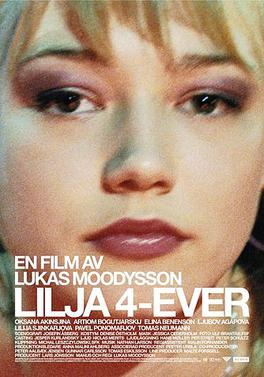
Lilya 4-ever is a 2002 crime drama film written and directed by Lukas Moodysson, which was released in Sweden on 23 August 2002. It depicts the downward spiral of Lilja Michailova, played by Oksana Akinshina, a girl in the former Soviet Union whose mother abandons her to move to the United States. The story is loosely based on the true case of Danguolė Rasalaitė, and examines the issue of human trafficking and sexual slavery.
The Sakharov Prize for Freedom of Thought, commonly known as the Sakharov Prize, is an honorary award for individuals or groups who have dedicated their lives to the defence of human rights and freedom of thought. Named after Russian scientist and dissident Andrei Sakharov, the prize was established in December 1988 by the European Parliament.
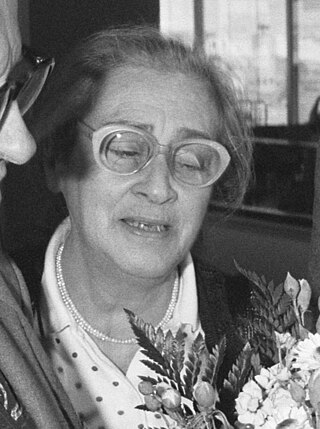
Yelena Georgiyevna Bonner was a human rights activist in the former Soviet Union and wife of the physicist Andrei Sakharov. During her decades as a dissident, Bonner was noted for her characteristic blunt honesty and courage.

The Belarusian Association of Journalists (BAJ) is a Belarusian professional association of journalists from independent media, created in 1995 to protect freedom of speech, freedom of information, promote the professional standards of journalism, conduct monitoring of Belarusian press, and offer legal support to all media workers.
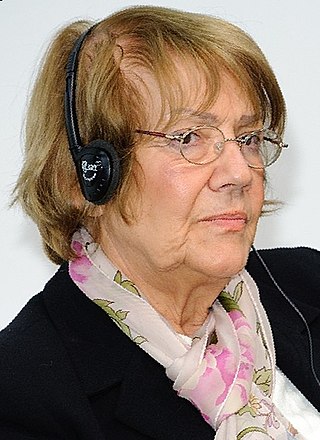
Vesna Pešić is a Serbian politician and sociologist.
Soviet dissidents were people who disagreed with certain features of Soviet ideology or with its entirety and who were willing to speak out against them. The term dissident was used in the Soviet Union (USSR) in the period from the mid-1960s until the Fall of Communism. It was used to refer to small groups of marginalized intellectuals whose challenges, from modest to radical to the Soviet regime, met protection and encouragement from correspondents, and typically criminal prosecution or other forms of silencing by the authorities. Following the etymology of the term, a dissident is considered to "sit apart" from the regime. As dissenters began self-identifying as dissidents, the term came to refer to an individual whose non-conformism was perceived to be for the good of a society. The most influential subset of the dissidents is known as the Soviet human rights movement.
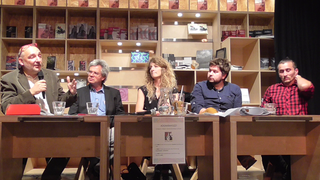
The Hungarian Helsinki Committee is a non-governmental human rights organization founded in 1989 and based in Budapest, Hungary. The HHC is a member of the International Helsinki Federation for Human Rights and the European Council on Refugees and Exiles. The HHC defines itself as monitoring the respect for human rights protected by international human rights instruments, to inform the public about human rights violations and to provide victims of human rights abuse with free legal assistance. It is also linked with the OMCT and is a member organisation of the European Council on Refugees and Exiles (ECRE).

The Movement for Defence of Voters' Rights "Golos", formerly GOLOS Association, is a Russian organisation established in 2000 to protect the electoral rights of citizens and to foster civil society. As of 2008, the organisation covers 40 Russian regions. It is the only election watchdog active in Russia that is independent of the Russian government.

Lyudmila Mikhaylovna Alexeyeva was a Russian historian and human-rights activist who was a founding member in 1976 of the Moscow Helsinki Watch Group and one of the last Soviet dissidents active in post-Soviet Russia.
The Norwegian Helsinki Committee is a Norwegian human rights non-governmental organization based in Oslo. It was founded in 1977 following the adoption of the Helsinki Accords. It works to ensure that human rights are respected in practice. It was affiliated with the now defunct International Helsinki Federation for Human Rights.
The Russian foreign agent law requires anyone who receives support from outside Russia or is under influence from outside Russia to register and declare themselves as foreign agents. Once registered, they are subject to additional audits and are obliged to mark all their publications with a 24-word disclaimer saying that they are being distributed by a "foreign agent". The phrase "foreign agent" in Russian has strong associations with Cold War-era espionage. The law has been heavily criticized both in Russia and internationally as violating human rights, and as a tool used to suppress civil society and press freedom within Russia, particularly groups opposed to Vladimir Putin.

Leyla Islam qizi Yunusova, better known as Leyla Yunus, is an Azerbaijani human rights activist who serves as the director of Institute of Peace and Democracy, a human rights organisation. She is particularly known for her work helping citizens affected by forced evictions in Baku, on whose behalf she organized several small protests.

Rasul Jafarov is a lawyer and prominent human rights defender in Azerbaijan.
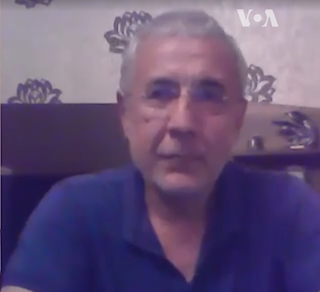
Intiqam Kamil oglu Aliyev is an Azerbaijani lawyer and human rights activist.

The Sakharov Center was a museum and cultural center in Moscow devoted to protection of human rights in Russia and preserving the legacy of the prominent physicist and Nobel Prize winning human rights activist Andrei Sakharov. It was founded by the "Public Commission to Protect the Legacy of Andrei Sakharov", an international non-governmental organization established in 1990 through the efforts of Sakharov's widow Yelena Bonner and other Sakharov's friends and colleagues.
In 1965 a human rights movement emerged in the USSR. Those actively involved did not share a single set of beliefs. Many wanted a variety of civil rights — freedom of expression, of religious belief, of national self-determination. To some it was crucial to provide a truthful record of what was happening in the country, not the heavily censored version provided in official media outlets. Others still were "reform Communists" who thought it possible to change the Soviet system for the better.
Lilia Shibanova is a Russian activist and is the head of the independent election monitoring group Golos. She was awarded the Andrei Sakharov Freedom Award.
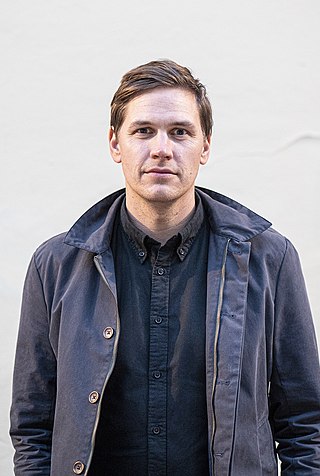
Jørgen Watne Frydnes is a Norwegian administrator and politician.